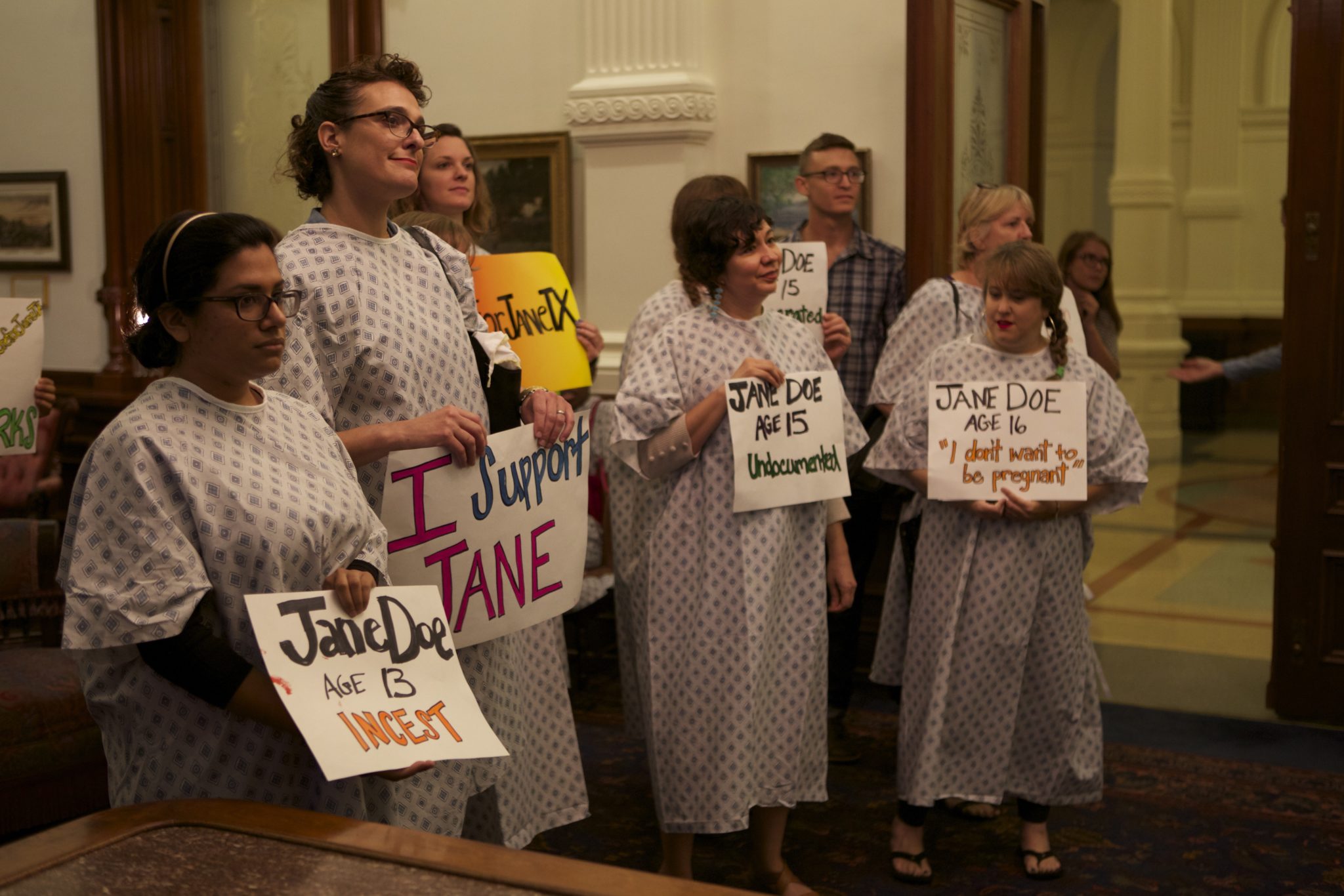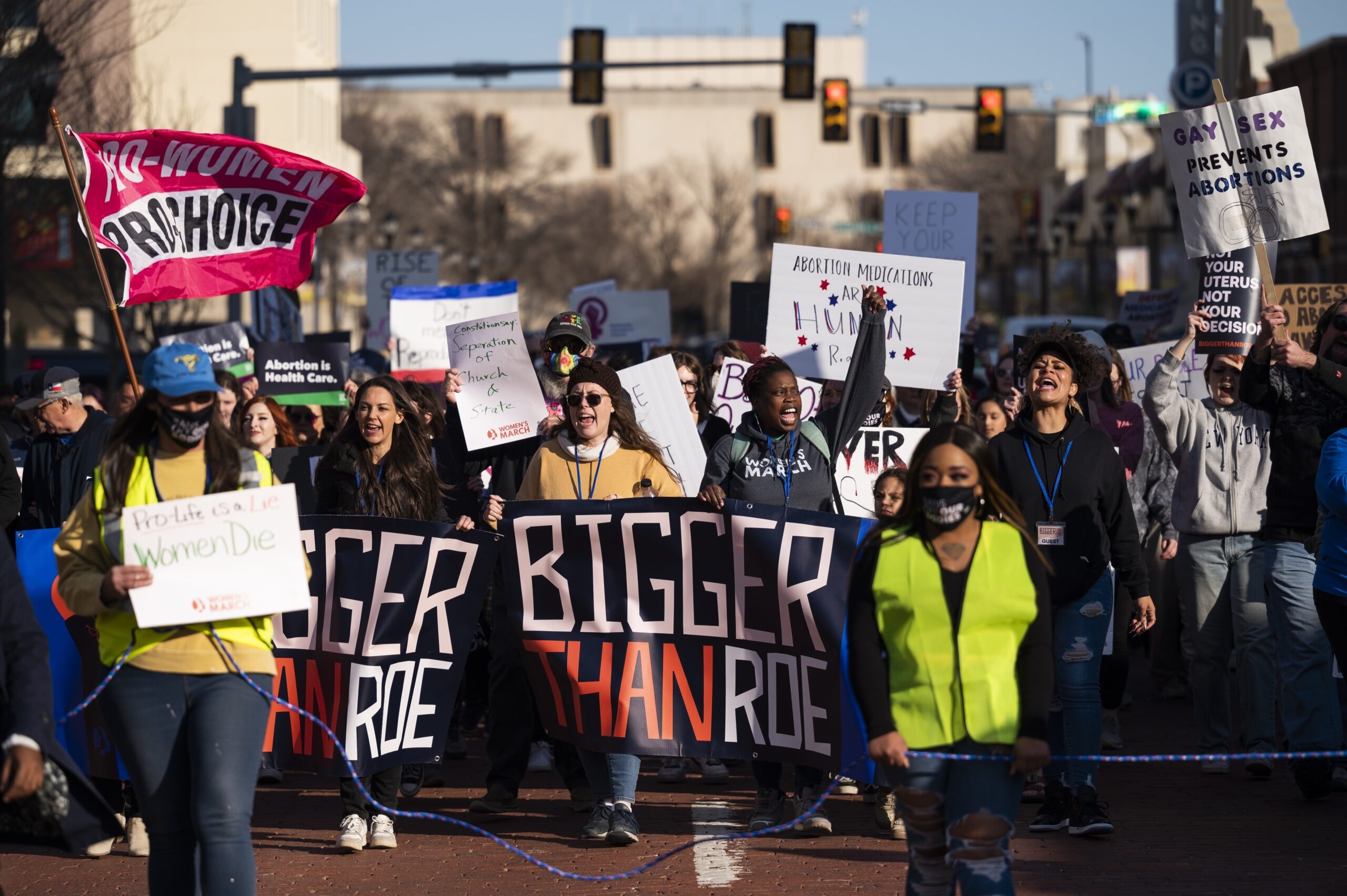

Update, 6:25 p.m.: In a statement released Tuesday evening, a representative for Texas Alliance for Life praised the Texas Supreme Court’s rules on HB 3994. “The Texas Supreme Court has faithfully implemented House Bill 3994 in a way that will best protect the well being of minor girls,” said the group’s executive director, Joe Pojman.
Original story:
As part of the implementation of new abortion restrictions in the state, the Texas Supreme Court issued rules Tuesday that will make it more difficult for abused and neglected minors who seek abortions to do so without the involvement of their parents. Even more difficult, reproductive rights advocates say, than anti-abortion Texas lawmakers had originally intended.
According to the new rules, if a judge fails or refuses to rule on a minor’s application for an abortion after five business days, the minor’s application is denied.
That’s a significant change from the letter of the newly passed judicial bypass law, HB 3994, according to reproductive rights attorney Susan Hays, who criticized what she described as overreach on the part of the Texas Supreme Court.
“They have gone beyond the scope of even what HB 3994 did,” said Hays. “They’ve gone against the advice of their own incredibly esteemed advisory committee.”
That advisory committee was convened in October and comprised some of the state’s top legal minds. The committee members were puzzled by the challenges posed by HB 3994, which simply deleted existing statutory language automatically granting a minor’s application for abortion in the absence of a judge’s ruling. The new law was silent on the question of what should be done in those circumstances, so the committee ultimately recommended that, if no ruling is issued in a case, a new judge should be appointed.
Instead, the Texas Supreme Court inserted language allowing a judge to automatically deny a minor’s ruling simply by refusing to take action on their case at all.
If a judge refuses to take the case and hold a hearing, the case will be deemed denied — but the minor wouldn’t have a record to show an appellate court for review. Refiling the case requires the minor to show a “material change” in her circumstances. While the minor could ask that the judge be recused, she’d have to ask the judge who wouldn’t take the case initially.
Hays said that the inserted “denial” language amounts to “creating substantive law, above and beyond the scope of what the rules are intended to do.”
The law, and the new rules, put pregnant minors — many of whom could be in danger of abuse or forced pregnancy at the hands of their parents — in a unique position in terms of the Texas legal system, and not in a good way, said Hays.
“A pregnant teenage girl has to jump over bigger procedural court hurdles than any other litigant in Texas,” Hays told the Observer. Hays helped found the nonprofit Jane’s Due Process, which helps abortion-seeking minors navigate the courts.
Supporters of HB 3994 said the law closed unnecessary “loopholes” in the judicial bypass process that enabled minors to deceive their parents and the legal system to obtain abortions. Reproductive rights advocates called the law a legislative bullying attempt that would make it almost impossible for already struggling minors to legally end their pregnancies.
Three Texas Supreme Court justices, all Republicans, will face primary challenges in March.
Correction, December 30: The story has been updated to more accurately reflect and draw distinctions between the appeals and refiling process for a minor’s application if it has been “deemed denied.”


